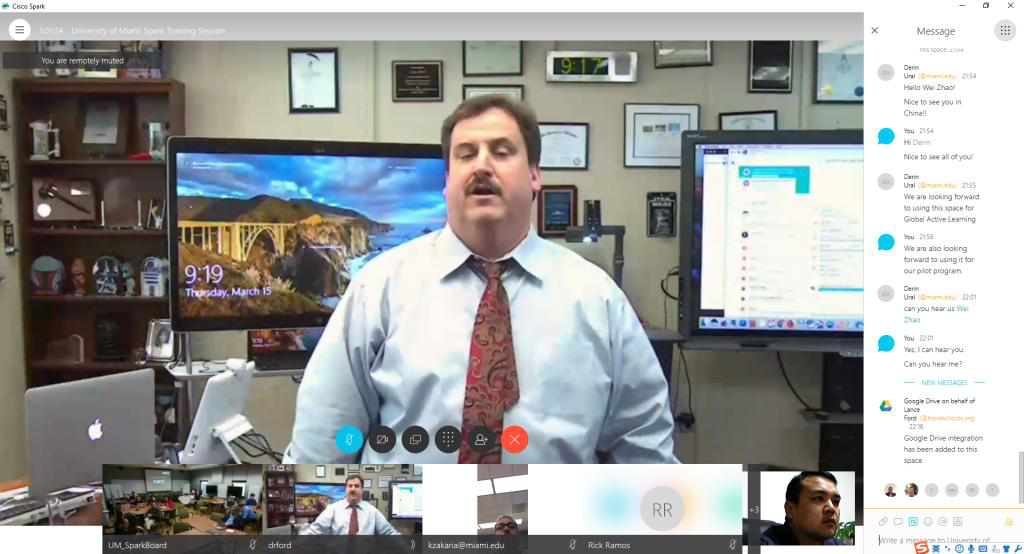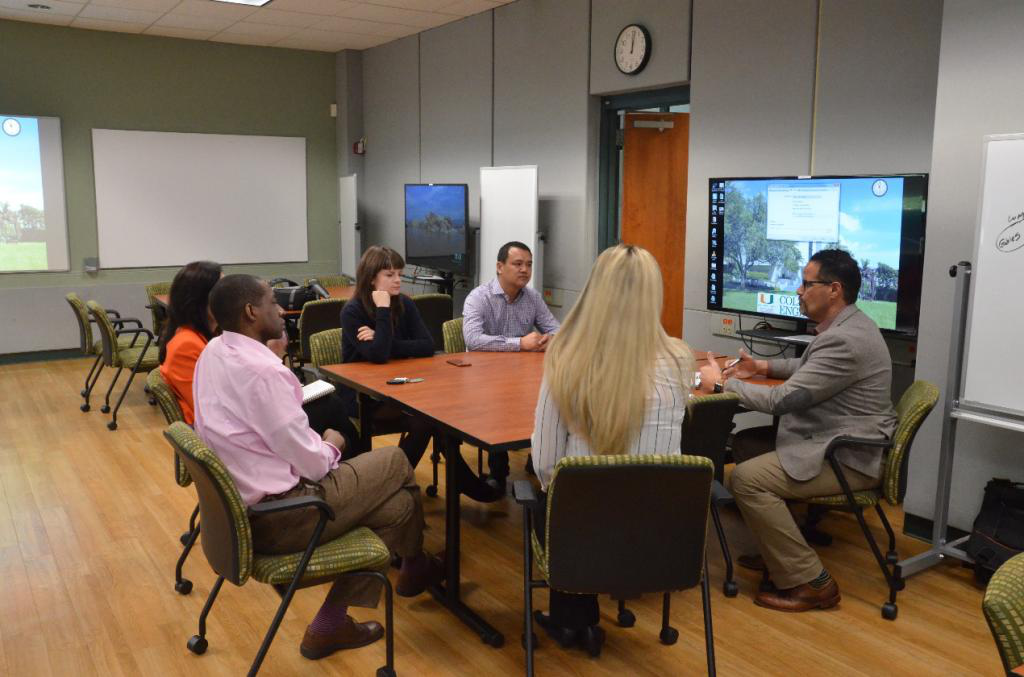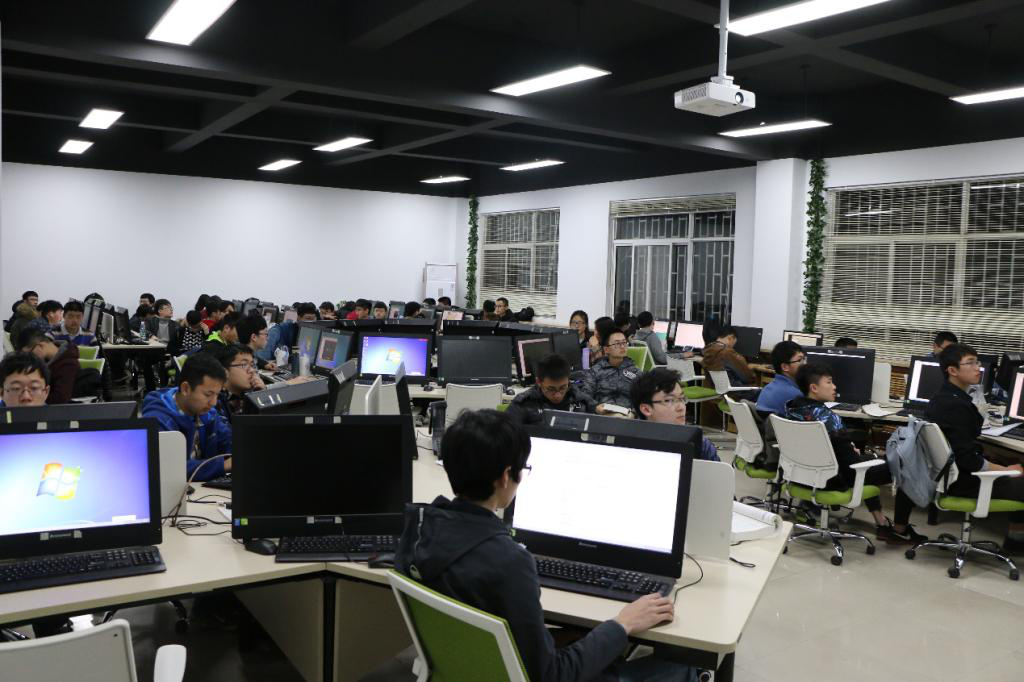At 11:00 p.m. on March 15 (Beijing time), the test of Cisco Spark, a real-time remote collaborative teaching platform for the Global Active Learning Project jointly conducted by the College of Engineering of the University of Miami (hereinafter referred to as UM) and the Miami College of Henan University (hereinafter referred to as HENU), achieved a complete success, which represents a crucial step in the joint reform program of undergraduate engineering education between the two schools.

This program aims to reform the traditional classroom-teaching model through web-based tools and innovations, and transform students’ passive learning into mutual-aid active learning, and improve the teaching effectiveness by virtue of the cross-regional communication between teachers of different cultural background and same-age students. When the delegation of the UM visited our school in June 2017, both sides reached an agreement on the project cooperation. Later, when Zhao Wei, the Vice Dean of Teaching at Miami College, went to the United States for exchanges and study, the two parties conducted in-depth communication on this project and selected “Circuit Principle” as a pilot course, which was set up by the associate professor Michael Scordilis of the UM and the associate professor Zhang Miaohui of HENU at the same time in the fall semester in 2017. In this course, more than 40 students of the UM and over 50 students of HENU collaborated on the design for portable security systems. They used new communication technologies, including WeChat, Internet Telephony, etc., and overcame the 13-hour time difference for collaborative research, eventually achieved research results including design demonstrations, video sharing and joint reports, which were highly praised by both faculties and staffs. The official website of the UM gave a special report on this. It is reported that the UM has already reformed 7 engineering courses successfully by using this training model and plans to transform another 60 courses in 2018. The joint reform of undergraduate engineering education with our school is an important part of this program.

With the successful testing of the new teaching platform Cisco Spark, the two schools will achieve joint teaching on more engineering specialized courses in the future, which will provide another platform for our students to receive world-class high-quality education resources without going abroad. The implementation of this new teaching model in the field of engineering can effectively improve the teaching quality, and meanwhile, it can also enhance students’ cross-regional teamwork ability, cross-cultural communication ability and comprehensive competitiveness facing the world.
